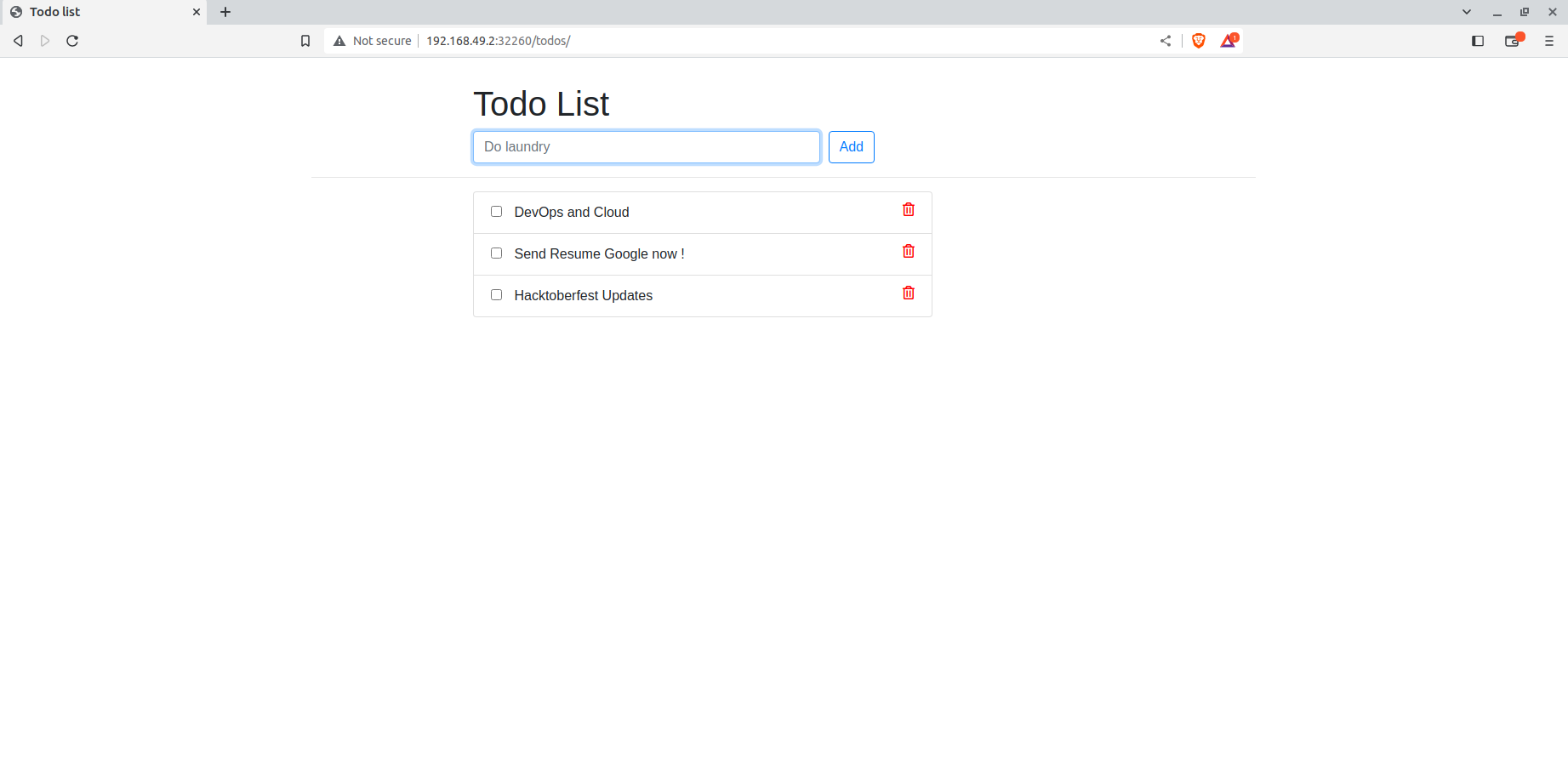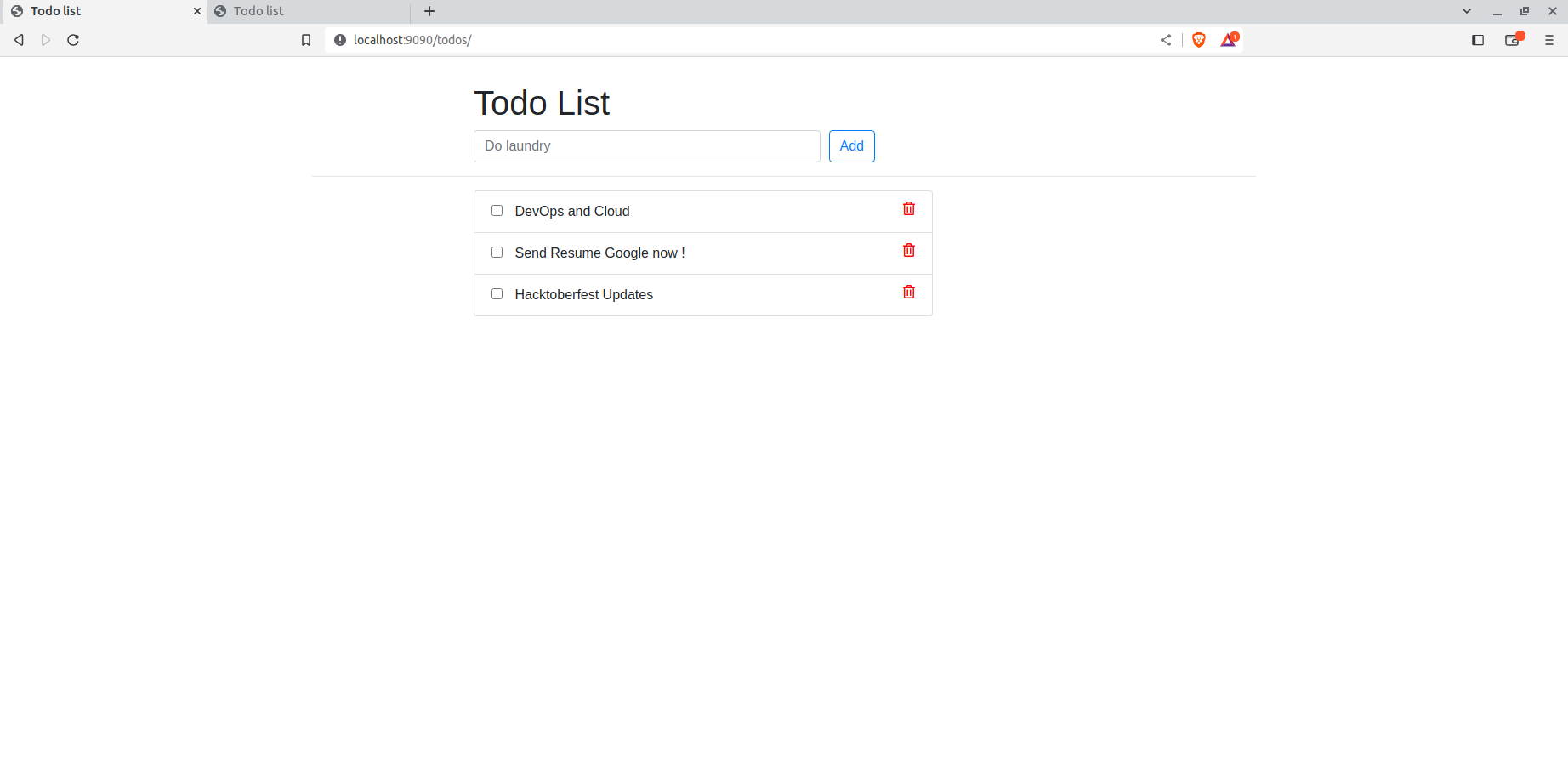This project features how to containerize a Django application with Nginx reverse proxy and run that in Kubernetes cluster.
Any Django application runs on a WSGI(A Web Server Gateway Interface) server. Gunicorn is a popular WSGI application server usually used to run Django applications in production. In order to use Nginx for security purposes, nginx proxy server setup is needed which redirects all incoming traffic to Gunicorn application server and mask the real ip address.
To get this repository, run the following command inside your git enabled terminal
git clone https://github.com/SouvikGhosh05/django-todo.gitPull the docker container on your machine to test the app. For this command to work, you must have docker installed on your machine.
docker pull souvikdocks250/todoapp:v1Once you have downloaded django, go to the cloned repo directory and run the following command
Every nginx application have its default configuration saved in default.conf file. The file should look like this:-
upstream django_project {
server localhost:8000;
}
error_log /var/log/nginx/error.log;
server {
listen 80;
server_name <kubernetes-node-ip> localhost;
root /www/data/;
access_log /var/log/nginx/access.log;
location / {
proxy_pass http://django_project;
proxy_set_header X-Forwarded-For $proxy_add_x_forwarded_for;
proxy_set_header X-Real-IP $remote_addr;
proxy_set_header Host $host;
proxy_redirect off;
}
error_page 500 502 503 504 /50x.html;
location = /50x.html {
root /usr/share/nginx/html;
}
}
If you use NodePort service you should put kubernetes node ip in <kubernetes-node-ip> block. If you run minikube, you will get the node ip by running minikube ip command.
This configuration was passed via using configmap with configmap.yaml here.
In this project I have created a deployment with 3 replicas and used NodePort service to access the appliation from your machine. Run the following commands to deploy it:-
chmod +x kubernetes-deploy.sh
./kubernetes-deploy.shIn the following, you will see the django-todo-app-service is running on 32260.
NAME TYPE CLUSTER-IP EXTERNAL-IP PORT(S) AGE
django-todo-app-service NodePort 10.99.200.208 <none> 8080:32260/TCP 2m24s
kubernetes ClusterIP 10.96.0.1 <none> 443/TCP 347d
When typed http://192.168.49.2:32260 in the browser, the app is accessible as below:-

It is also possible to run this app with ClusterIP service. To do that, we need to do port-forward method to access the app to the localhost. If you want to access the access the app to port 9090 on localhost, use the following command:-
kubectl port-forward svc/django-todo-app-service 9090:8080When typed http://localhost:9090 in the browser, the app is accessible as below:-

Happy Kubernetes!